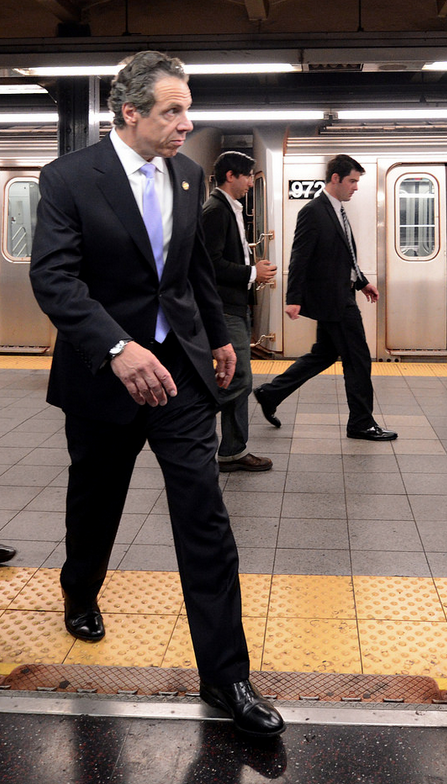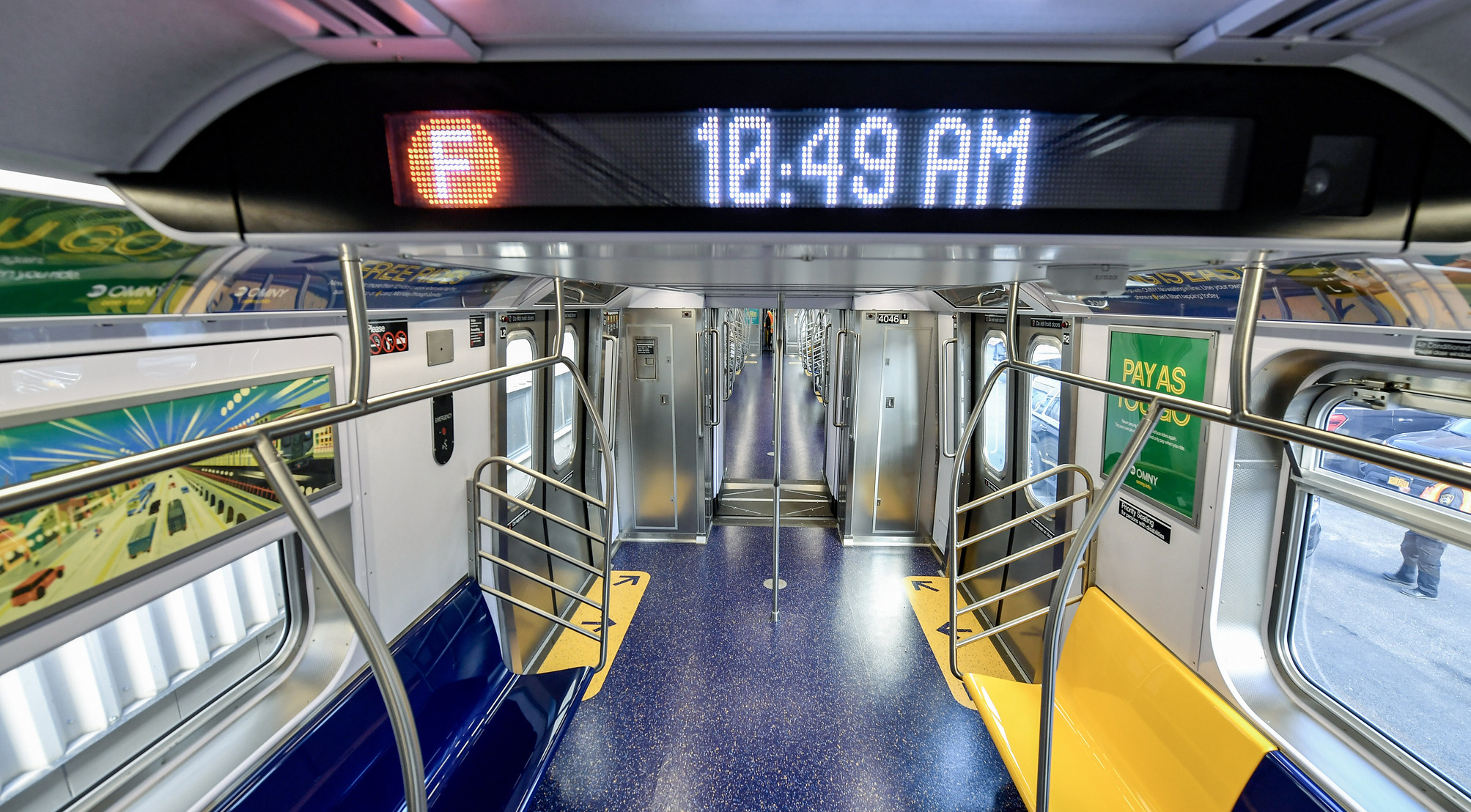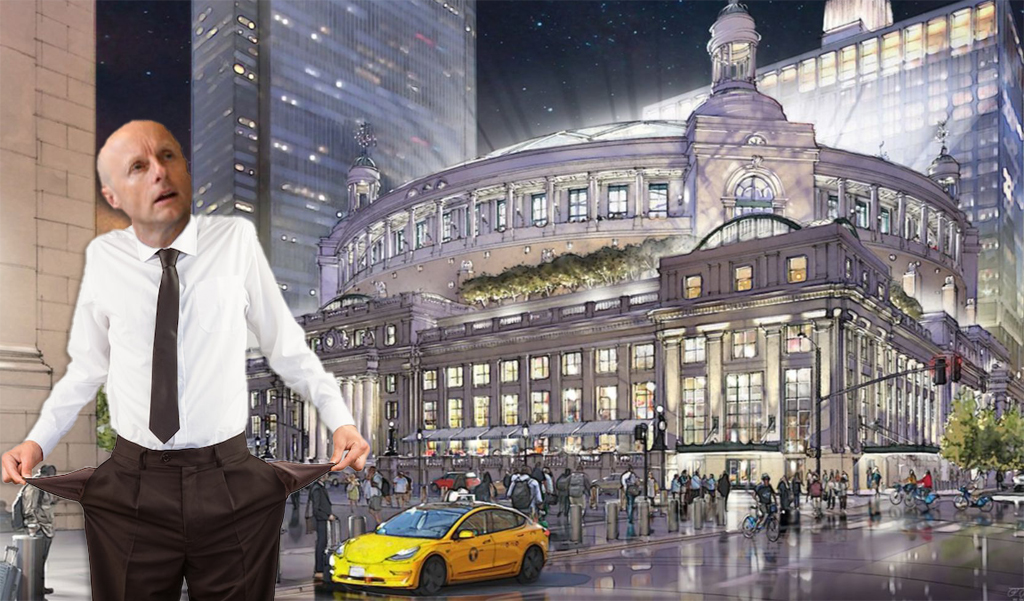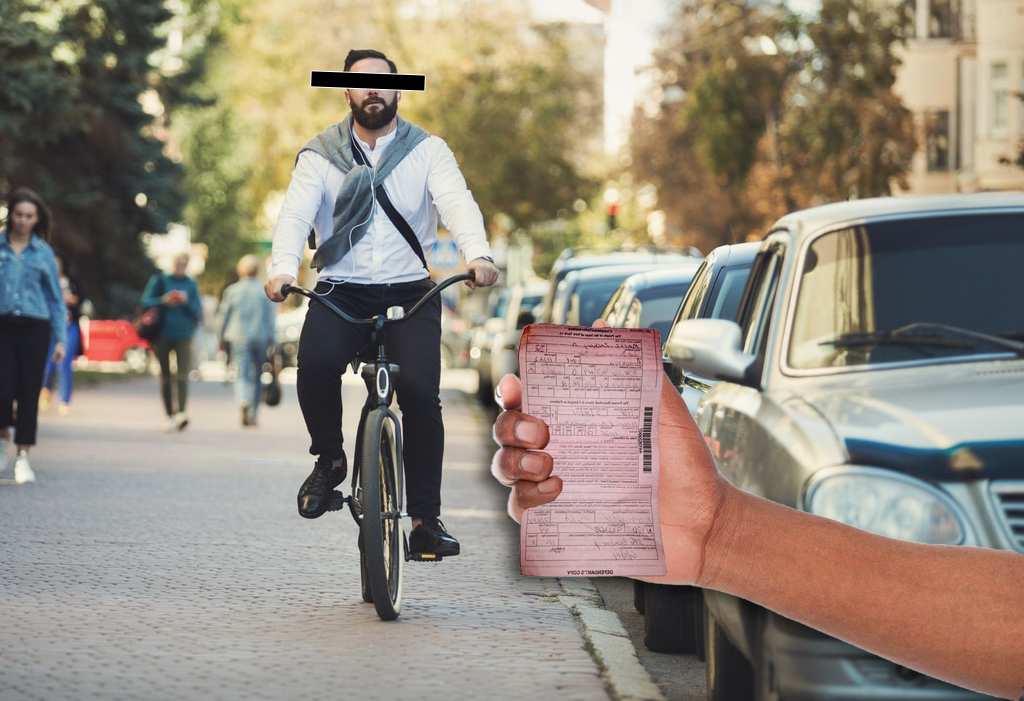Governor Andrew Cuomo's months-long attempt to squeeze money out of City Hall for the MTA appears to be reaching its end game.

Cuomo and his people at the MTA -- which, despite what the governor says, is a state entity under his control -- have been asking Mayor de Blasio for ever-increasing amounts of money to fill the gap in its capital program. Earlier today, Cuomo went on WNYC to bash the mayor for not handing over the dough.
The governor says the city should pony up because it relies on the MTA more than any other jurisdiction. But the city has good reason not to hand over significant sums to a state-controlled agency, no strings attached. Transit riders will be better off if de Blasio negotiates a good deal with Cuomo instead of capitulating.
First, there's the lockbox question. Cuomo has a history of siphoning funds out of the MTA to paper over gaps on the state budget. City Hall likes to note, for example, that Cuomo has raided $270 million from the MTA since taking office in 2011. That same year, the state legislature passed a lockbox bill that would sound an alarm whenever the governor attempts to sneak his hand into the MTA's cookie jar, but Cuomo neutered the bill. The legislature tried again two years later. Cuomo vetoed the bill and denied he'd ever raided the MTA's budget.
Now de Blasio seems to be seeking a lockbox-type guarantee as part of the deal. "I’m not comfortable with paying -- you know, paying out of the New York City budget, New York City taxpayer money, only to see it taken out of the MTA and into the state budget. So, you know, there’s real discussions that have to be held about how to reform that situation," de Blasio told Brian Lehrer on Friday. "We’ve got to see those issues resolved upfront."
The second big question: Who is really paying? Cuomo has agreed to cover $8.3 billion over five years, nearly three-quarters of the MTA's current gap. That will come from the state's $20 billion infrastructure budget slated to be presented in January, the governor told NY1. But that doesn't really explain much.
Cuomo insists straphangers won't pay extra to fill the MTA gap. "I am against a fare increase," he told NY1 on Friday. (Who isn't?) That seems to rule out borrowing backed by MTA fares. But it seems unlikely that the state can come up with the $8.3 billion by spending directly from its general fund -- it's too large a number and the state's budget is not that flexible. Absent a new revenue stream like Move NY toll reform, the only other conceivable option is to borrow against the state's general fund.
This too presents a risk for transit riders, however. Cuomo has already moved transit bond payments from the state's books to the MTA, saddling straphangers with extra debt and steeper fare hikes. If the state borrows for transit now, there's nothing to stop the governor from shuffling the bonds around a few years down the line, transferring his $8.3 billion "promise" onto your MetroCard.
If de Blasio is savvy, he can, at the very least, get the governor to make a high-profile public commitment that the burden of paying off the new bonds won't get shifted onto transit riders in the future.
Finally, if the city contributes more to the capital program, will it have more control over what gets built? Cuomo likes to say that most of the capital program is being spent in New York City. And that's what you'd expect, since the capital program is primarily concerned with maintaining the extensive infrastructure of the city's transit system. But the biggest line item is $2.6 billion to complete East Side Access, which will primarily serve Long Island commuters who work in Midtown.
On WNYC this morning, Cuomo tried to shame de Blasio into giving the MTA unrestricted cash by invoking his predecessor. "Mike Bloomberg invested in the MTA and it was an investment that I think is going to go down in his legacy as one of the smartest moves he’s made as mayor," Cuomo said. "I think the same thing should happen for this mayor.”
Let's rewind. Bloomberg's big attempt to fill the MTA's capital plan gap -- congestion pricing -- was killed by Albany. The MTA investment that actually went forward was for the 7 train extension to Hudson Yards, which the MTA wouldn't have built without city funding. Under Bloomberg, in other words, the city spent money on what the city could control.
Negotiations between Cuomo and de Blasio are heating up. A recent Daily News report said the city was in discussions about an additional $1 billion commitment, with the rest to come from a new revenue source. If you take Cuomo at his word and look to Bloomberg's handling of MTA funding as a model, a guiding principle should be that if the de Blasio administration gives more money to the MTA, it should go to City Hall's priorities.





